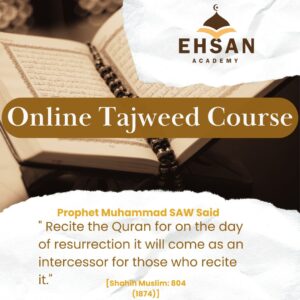Prophet Muhammad (PBUH) is considered the greatest man who ever walked the face of the earth. Born in Mecca in 570 AD, he received his first revelation from Allah at the age of 40 and went on to preach the message of Islam to the people of Arabia. His teachings and example have had a profound impact on billions of people around the world and made Prophet Muhammad the greatest man ever.
Table of Contents
- 1 Early Life
- 2 Revelation
- 3 Teachings
- 4 Early Ministry
- 5 Medina Period
- 6 Return to Mecca
- 7 Final Years
- 8 Prophet Muhammad, the greatest man ever
- 9 His leadership
- 10 His patience
- 11 His humility with his wives
- 12 His kindness with his enemies
- 13 His mercy with animals
- 14 His generosity
- 15 His dedication
Early Life
Prophet Muhammad (PBUH) was born into the Banu Hashim clan of the Quraysh tribe in Mecca. His father, Abdullah, died before he was born, and his mother, Amina, died when he was only six years old. He was raised by his grandfather and later by his uncle, Abu Talib. As a young man, he worked as a trader and gained a reputation for honesty and integrity.
Revelation
At the age of 40, while meditating in a cave on Mount Hira, Muhammad received his first revelation from Allah through the angel Gabriel. The revelation consisted of the first verses of the Quran, which form the basis of Islamic belief and practice. Muhammad was initially afraid and confused by the experience, but he eventually accepted his role as a prophet and began preaching the message of Islam to his fellow Arabs.
Teachings
Prophet Muhammad’s (PBUH) teachings emphasized monotheism, social justice, and compassion. He taught that there is only one Allah, and all people are equal in the eyes of Allah. He also stressed the importance of treating others with kindness and respect, regardless of their religion or social status. He emphasized the importance of prayer, charity, and fasting, and he encouraged his followers to seek knowledge and pursue peace.
Early Ministry
After receiving his first revelation, Prophet Muhammad (PBUH) began preaching Islam to the people of Mecca. However, his message was met with hostility from the city’s elite, who saw Islam as a threat to their power and influence. Muhammad and his followers endured persecution and violence, and many were forced to flee to the city of Medina in 622 AD. This event, known as the Hijra, marks the beginning of the Islamic calendar.
Medina Period
In Medina, Prophet Muhammad (PBUH) established a community of believers and became the city’s leader. He worked to establish peace and reconciliation between the various tribes and factions, and he successfully negotiated several treaties and alliances. He also began to build an army to defend the Muslim community.
Return to Mecca
In 630 AD, Prophet Muhammad (PBUH) and his followers marched on Mecca and peacefully reclaimed the city. He entered the city as a victor but chose to forgive his former enemies and offer them amnesty. He then destroyed the idols in the Kaaba, the holiest site in Islam, and established it as a place of worship for Muslims.
Final Years
After the conquest of Mecca, Prophet Muhammad (PBUH) continued to preach and teach until his death in 632 AD. He made a final pilgrimage to Mecca, known as the Hajj, and delivered his famous Farewell Sermon, in which he emphasized the importance of unity and brotherhood among Muslims.
Prophet Muhammad, the greatest man ever
Prophet Muhammad’s (PBUH) legacy extends far beyond his own lifetime. He established the foundations of the Islamic faith, which remains a vibrant and dynamic religion today. He also established a model of leadership, which emphasized humility, compassion, and service to others. His teachings on social justice, human rights, and the importance of education continue to inspire people around the world.
– Prophet Muhammad (PBUH) is known as the “last of the Prophets” in Islam, meaning that he is the final prophet sent by Allah to guide humanity.
– Prophet Muhammad’s (PBUH) teachings were recorded in the Quran, which is considered the holy book of Islam. The Quran is believed to be the literal word of Allah, revealed to Muhammad through the angel Gabriel.
– Prophet Muhammad’s (PBUH) personal life and character serve as a model for Muslims to follow. His actions and sayings, known as the Sunnah, are recorded in collections of hadiths, which provide guidance on a wide range of topics, including prayer, fasting, marriage, and social justice.
– Prophet Muhammad’s (PBUH) message of monotheism and social justice appealed to people across Arabia, regardless of their tribe or background. Islam spread rapidly throughout the region, and within a century of Muhammad’s death, it spread to Spain in the west and India in the east.
– Prophet Muhammad (PBUH) is known as the world’s best man and his leadership was an example to inspire Muslims today. His teachings on compassion, humility, and service to others serve as a guide for Muslims to live their lives in accordance with Allah’s will.
– Prophet Muhammad (PBUH) is revered by Muslims worldwide as one of the most important and beloved figures in history. His birthday, known as Mawlid, is celebrated by Muslims around the world as a day of joy and remembrance.
Prophet Muhammad’s (PBUH) manners, character, and personal qualities are highly revered by Muslims and are considered an integral part of his teachings. Here are some of the manners that he was known for:
1. Humility: Prophet Muhammad (PBUH) was known for his humility and modesty. He would always put others before himself and never sought personal gain or glory.
2. Kindness: He showed kindness and compassion to all people, regardless of their religion or background. He would often visit the sick, help the poor, and comfort those in distress.
3. Honesty: Prophet Muhammad (PBUH) was known for his honesty and integrity. He was referred to as Al-Amin, meaning “The Trustworthy,” by his fellow Arabs, even before he received his prophethood.
4. Forgiveness: He forgave those who wronged him and taught his followers to do the same. He would often pray for his enemies and seek to reconcile with those who had hurt him.
5. Patience: Prophet Muhammad (PBUH) demonstrated great patience in the face of adversity and hardship. He endured persecution and hardship while preaching the message of Islam but never wavered in his commitment to Allah.
6. Respect: He showed respect and honor to all people, regardless of their social status or position. He taught that every person has inherent dignity and deserves to be treated with respect and kindness.
7. Generosity: Prophet Muhammad (PBUH) was known for his generosity and charity. He would often give away his possessions to those in need and encouraged his followers to do the same.
8. Humor: He had a sense of humor and would often joke with his companions. His humor was always kind and never hurtful.

His leadership
Prophet Muhammad (PBUH) was not just a spiritual leader, but also a political leader who established a model of leadership that has had a profound impact on history. Here are some of the key aspects of his leadership:
1. Leading by example: Prophet Muhammad’s (PBUH) leadership was based on setting a personal example for others to follow. He lived his life in accordance with the principles of Islam, and his actions and sayings, known as the Sunnah, serve as a guide for Muslims to this day.
2. Consultative leadership: He would consult with his companions and seek their advice before making important decisions. He believed in the importance of collective decision-making and would often ask for input from those around him.
3. Inclusive leadership: Prophet Muhammad (PBUH) was inclusive in his leadership, uniting people from different tribes and backgrounds under the banner of Islam. He emphasized the importance of treating all people with kindness and respect, regardless of their religion or social status.
4. Justice: He established a system of justice that was based on fairness and equity. He would settle disputes between people and encourage them to resolve their conflicts peacefully.
5. Compassion: Prophet Muhammad’s (PBUH) leadership was characterized by compassion and mercy. He would often show kindness to those who were marginalized or oppressed and would work to alleviate their suffering.
6. Visionary leadership: He had a clear vision for the future and worked tirelessly to establish an Islamic state that would be based on the principles of justice, equality, and compassion.
7. Strategic leadership: He was a strategic thinker who would carefully plan his actions and consider the consequences of his decisions. He would also adapt his strategy as circumstances changed.
His patience
Prophet Muhammad (PBUH) was known for his remarkable patience and endurance, especially in the face of adversity and hardship.
some examples of his patience:
1. Persecution in Mecca: Prophet Muhammad (PBUH) and his followers were subjected to severe persecution and harassment by the people of Mecca, who saw Islam as a threat to their power and influence. Despite this, Prophet Muhammad (PBUH) remained steadfast in his commitment to Allah and continued to preach the message of Islam.
2. The Hijra: When the persecution in Mecca became too severe, Prophet Muhammad and his followers were forced to flee to the city of Medina in 622 AD. This event, known as the Hijra, marked a crucial turning point in the history of Islam. Despite the difficulties and challenges of the journey, Prophet Muhammad remained patient and steadfast.
3. The Battle of Uhud: In 625 AD, Prophet Muhammad (PBUH) and his companions faced a fierce battle against the Meccans at Uhud. Despite being outnumbered and suffering heavy losses, Prophet Muhammad remained patient and steadfast, encouraging his companions to remain firm in their faith and commitment to Allah.
4. Treaty of Hudaybiyyah: In 628 AD, Prophet Muhammad (PBUH) negotiated a treaty with the Meccans, known as the Treaty of Hudaybiyyah. The terms of the treaty were unfavorable to the Muslims, but Prophet Muhammad remained patient and steadfast, knowing that the treaty would ultimately lead to peace and reconciliation.
5. Ta’if: In 619 AD, Prophet Muhammad traveled to the city of Ta’if to preach Islam, but was met with hostility and violence. Despite being injured and rejected by the people of Ta’if, Prophet Muhammad remained patient and forgiving, praying for the people of Ta’if and hoping that they would one day accept Islam.
His humility with his wives
Prophet Muhammad’s humility and kindness extended to his relationships with his wives. Here are some examples of his humility with his wives:
1. Household chores: Prophet Muhammad (PBUH) would often help with household chores, such as cooking, cleaning, and mending clothes. He would also milk the goats and fetch water from the well, showing his willingness to help with domestic tasks.
2. Spending time with his wives: Despite his busy schedule as a prophet and leader, Prophet Muhammad would make time to spend with his wives. He would talk with them, listen to their concerns, and show affection towards them.
3. Eating with his wives: Prophet Muhammad (PBUH) would eat with his wives, even though it was customary at the time for men to eat separately from women. He would also share his food with them and encourage them to eat before him.
4. Seeking advice: Prophet Muhammad (PBUH) would often seek the advice and input of his wives on important matters. He valued their opinions and recognized their wisdom and intelligence.
5. Expressing love: Prophet Muhammad (PBUH) would express his love and affection towards his wives, both privately and publicly. He would often praise their good qualities and show gratitude for their love and support.
His kindness with his enemies
Prophet Muhammad was known for his remarkable kindness and forgiveness towards his enemies. Here are some examples of his kindness towards his enemies:
1. The Conquest of Mecca: In 630 AD, Prophet Muhammad (PBUH) and his followers marched on Mecca and peacefully reclaimed the city. Despite the fact that the Meccans had persecuted and fought against him for many years, Prophet Muhammad forgave them and offered them amnesty. He entered the city as a victor but chose to forgive his former enemies and showed them compassion.
2. The Treaty of Hudaybiyyah: In 628 AD, Prophet Muhammad (PBUH) negotiated a treaty with the Meccans, known as the Treaty of Hudaybiyyah. The terms of the treaty were unfavorable to the Muslims, but Prophet Muhammad accepted them, knowing that the treaty would ultimately lead to peace and reconciliation.
3. The Battle of Uhud: In 625 AD, Prophet Muhammad (PBUH) and his companions faced a fierce battle against the Meccans at Uhud. Despite suffering heavy losses, Prophet Muhammad forgave the Meccans and prayed for their guidance and forgiveness.
4. The Conquest of Khaybar: In 628 AD, Prophet Muhammad (PBUH) and his followers conquered the Jewish oasis of Khaybar. Despite the fact that the Jews had previously fought against the Muslims, Prophet Muhammad forgave them and allowed them to continue living in the oasis.
5. The Ta’if Incident: In 619 AD, Prophet Muhammad (PBUH) traveled to the city of Ta’if to preach Islam but was met with hostility and violence. Despite being injured and rejected by the people of Ta’if, Prophet Muhammad forgave them and prayed for their guidance and forgiveness.
His mercy with animals
Prophet Muhammad (PBUH) was known for his mercy and kindness towards animals. Here are some examples of his mercy towards animals:
1. Kindness towards dogs: Prophet Muhammad (PBUH) had a deep love and respect for dogs, despite the fact that they were generally considered unclean by Arabs at the time. He would often play with his companions’ dogs and would even allow them to enter his mosque.
2. Mercy towards birds: Prophet Muhammad (PBUH) was known to show mercy towards birds. He once saw a bird that was frantically searching for its chicks and asked his companions to help find them. He also taught his followers to be kind to birds and to avoid harming them.
3. Compassion towards camels: Prophet Muhammad (PBUH) was known to show great compassion towards camels. He would often caress them and speak soothingly to them, and he forbade his followers from overloading them or treating them cruelly.
4. Respect for horses: Prophet Muhammad (PBUH) had great respect for horses and would often praise them for their speed and beauty. He also encouraged his followers to take good care of their horses and to treat them with kindness and respect.
5. Prohibition of animal cruelty: Prophet Muhammad (PBUH) prohibited animal cruelty and encouraged his followers to treat all animals with kindness and respect. He taught that animals are part of Allah’s creation and should be treated with compassion and mercy.
His generosity
Prophet Muhammad was known for his remarkable generosity towards others. Here are some examples of his generosity:
1. Charity: Prophet Muhammad (PBUH) encouraged his followers to give to charity and would often donate his own wealth to those in need. He would give generously to the poor, widows, orphans, and those in debt.
2. Hospitality: Prophet Muhammad (PBUH) was known for his hospitality towards guests. He would welcome strangers into his home and treat them with kindness and respect, often offering them food and drink.
3. Forgiveness: Prophet Muhammad (PBUH) was known for his forgiveness towards those who wronged him. He would often forgive his enemies and seek reconciliation with them.
4. Gift-giving: Prophet Muhammad (PBUH) would often give gifts to his companions and friends, showing his appreciation for their friendship and support. He would also receive gifts graciously and would often share them with others.
5. Fairness: Prophet Muhammad (PBUH) was known for his fairness and equity in distributing resources and wealth. He would ensure that everyone received their fair share and would not show favoritism or discrimination.
6. Selflessness: Prophet Muhammad (PBUH) was known for his selflessness and willingness to put others before himself. He would often sacrifice his own needs and desires for the sake of others.
His dedication
Prophet Muhammad (PBUH) was known for his unwavering dedication to his mission of spreading the message of Islam and improving the lives of his followers. Here are some examples of his dedication:
1. Preaching: Prophet Muhammad (PBUH) spent his entire adult life preaching the message of Islam and calling people to turn towards Allah. He would spend long hours in prayer and contemplation, and would often travel long distances to spread his message.
2. Leadership: Prophet Muhammad (PBUH) was a dedicated leader who worked tirelessly to establish a community based on the principles of Islam. He would consult with his companions and seek their advice before making important decisions, and he would lead by example, showing his followers the importance of humility, compassion, and justice.
3. Perseverance: Prophet Muhammad (PBUH) faced many challenges and obstacles in his life, including persecution, rejection, and assassination attempts. Despite these difficulties, he remained steadfast in his commitment to Allah and never wavered in his determination to spread the message of Islam.
4. Education: Prophet Muhammad (PBUH) was dedicated to educating his followers and encouraging them to seek knowledge. He would often teach his companions about the Quran and the teachings of Islam, and he would encourage them to pursue education and learning.
5. Social justice: Prophet Muhammad (PBUH) was dedicated to promoting social justice and improving the lives of the poor and marginalized. He would often give to charity and encourage his followers to do the same, and he would work to establish a society based on fairness, equity, and compassion.







